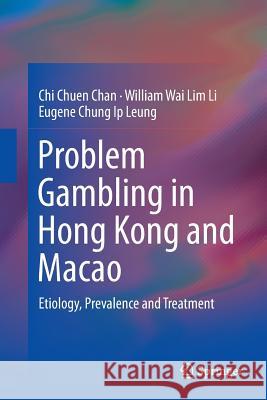Problem Gambling in Hong Kong and Macao: Etiology, Prevalence and Treatment » książka
topmenu
Problem Gambling in Hong Kong and Macao: Etiology, Prevalence and Treatment
ISBN-13: 9789811093203 / Angielski / Miękka / 2018 / 161 str.
Kategorie:
Kategorie BISAC:
Wydawca:
Springer
Język:
Angielski
ISBN-13:
9789811093203
Rok wydania:
2018
Wydanie:
Softcover Repri
Ilość stron:
161
Waga:
0.25 kg
Wymiary:
23.39 x 15.6 x 0.97
Oprawa:
Miękka
Wolumenów:
01
Dodatkowe informacje:
Wydanie ilustrowane











